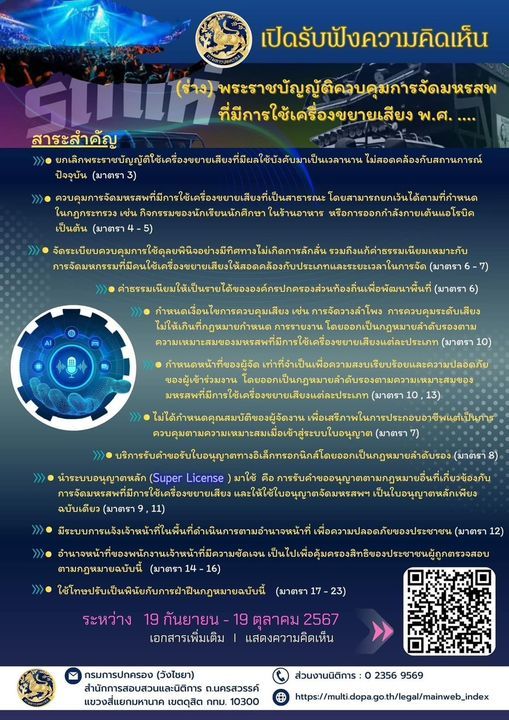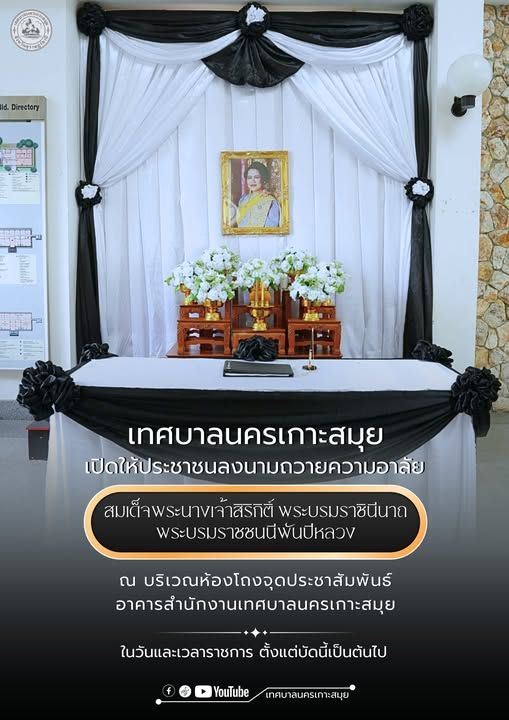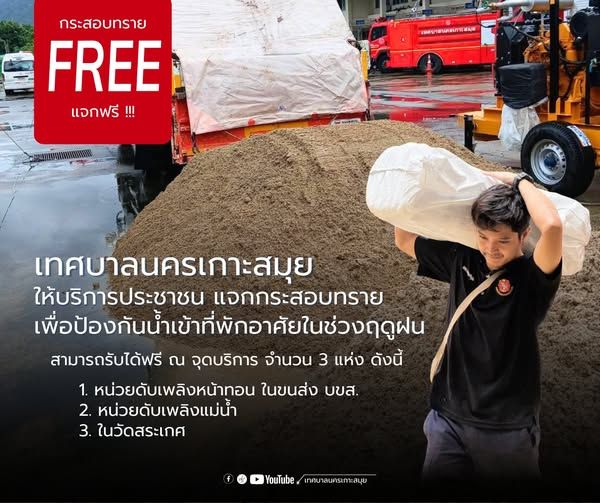In an effort to update and revitalize existing legislation, the Department of Provincial Administration is actively seeking feedback from the public. The initiative is centered on revising laws related to sound amplification at public events, a move that reflects contemporary needs and technological advances.
Historical Context of Sound Amplification Regulation
Sound amplification at public events has been regulated in Thailand since 1950 A.D., which corresponds to the Buddhist Era year of 2493. The original Act was designed to address the potential nuisances and disturbances caused by amplified sound used in advertising and public entertainment. It aimed to balance commercial freedoms with the right of the public to a peaceful environment.
The Need for Change
As society evolves, so does the technology we use. Sound amplifiers today are far more powerful and capable than their mid-20th-century counterparts. This reality necessitates a fresh look at the laws to ensure they remain effective in mitigating noise pollution without stifling cultural and commercial activities that are essential in modern Thai society.
Public Participation in Legislative Reform
Recognizing that effective laws require the input of those they impact, the Department of Provincial Administration has opened the floor for public opinions. This democratic process allows citizens to have a voice in the drafting of the new Act. It’s an approach that ensures the law not only serves its purpose but also respects the rights and expectations of the population.
Invitation for Public Engagement
Starting from September 19, 2024, to October 19, 2024, individuals and organizations are invited to share their views on the proposed legislation. This window of opportunity is significant for gathering a wide range of perspectives, which is critical for drafting a well-rounded and effective Act.
Accessibility of Information
For those interested in participating, the Department has provided a link to submit opinions through a centralized legal system, ensuring ease of access and a structured approach to collecting feedback. Additionally, supplementary documents are available for review to aid in forming informed opinions and suggestions.
Impact of Public Feedback
The opinions collected during this period will directly inform the drafting process and help shape the final version of the Act. This is a testament to the importance of civic engagement in the legislative process and the government’s commitment to transparency and responsiveness.
In conclusion, with the active engagement of its citizens, Thailand is on the path to enacting legislation that respects the balance between public enjoyment and communal peace.




